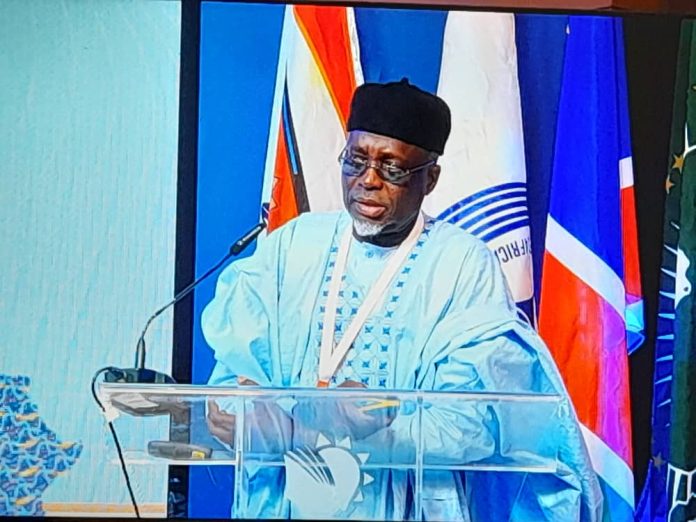
(Windhoek, Namibia ) Prof. Is-haq Oloyede, the Registrar, Joint Admissions and Matriculation Board (JAMB) has stressed the need to build bridges as a way of changing the narrative of higher education in Africa through profundity bottom-up approach.
He stated this while presenting a paper during the 22nd Conference of Rectors, Vice Chancellors and Presidents of African Universities (COREVIP 2023) holding in Windhoek, Namibia.
In the paper entitled “Breaking Barriers and Building Strategies for Advancing Excellence in African Higher Education” , Oloyede opined that higher education is a key driver of economic development and social progress which plays crucial role in shaping the future of any nation.
The JAMB boss identified inadequate funding, limited access to quality education, brain drain and outdated curricula as some of the challenges and barriers affecting the higher education in Africa.
He averred that several factors were also responsible for the decline in quality of higher education in Africa listing some of them as institutional factors, poor governance structures, lack of academic freedom and inadequate funding.
To overcome the challenges, Oloyede canvassed for the support of institutions by coming up with appropriate policies and governance structures.
The former Vice-Chancellor of University of Ilorin noted with concern that despite progress made in recent years, millions of young people still lack access to higher education in Africa due to poverty, distance, gender, disability and other factors.
To get out of the barriers, he recommended expansion of capacity of existing institutions, creating new institutions, providing scholarships and bursaries, leveraging technology to reach remote and marginalised communities.
“We must develop policies and programmes that promote inclusivity and equity in higher education, providing equal opportunities for all regardless of their background, gender or socio-economic status”, he noted.
Oloyede added that there is need to ensure that higher education is affordable and accessible to all, promoting research and innovation.
Oloyede, who is the former Chairman of Association of African Universities (AAU) from 2009 to 2011, lamented that African Universities often operate in isolation, which limits their ability from the expertise and resource of international universities.
“Let us create a brighter future for the generations to come by expanding access, enhancing quality, promoting relevance and building bridges. We can create a higher education system that is truly transformative for our continent and our people”, he advised.
On funding, Oloyede canvassed for the coming together of governments, private sector and philanthropists to find sustainable solutions to the funding challenges facing higher education in Africa.
He said there is also urgent need to identify priority areas that need attention in African higher education and establish partnerships with international institutions.
On brain drain, which he identified as another barrier against advancing excellence in African higher education, said there is need to create opportunities that keep the talented students and educators in Africa by offering competitive salaries and improve working conditions.
He stressed that it is important to turn brain drain to brain gain and create opportunities for career advancement for staff as well as use technology as potential to transform education by making it more accessible, affordable and flexible.
The five-day Conference which has as its theme “Advancing Excellence in African Higher Education ” has over 600 participants which include Rectors, Vice Chancellors, Researchers and other stakeholders in attendance.














